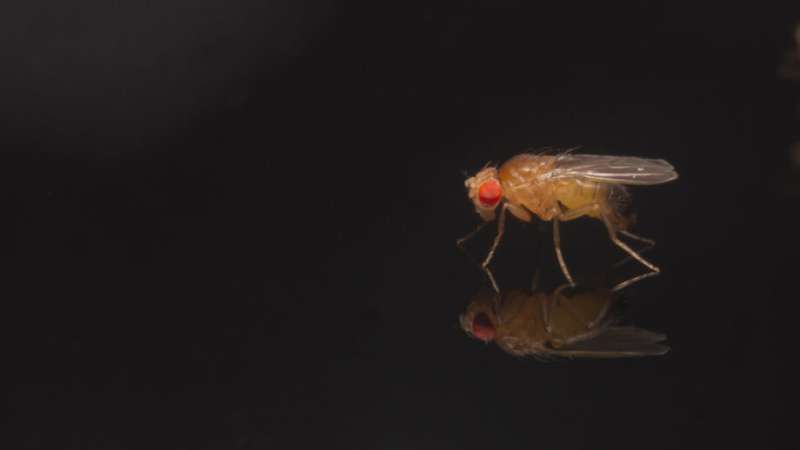New study sheds light on how X and Y chromosomes interact

Researchers at Lund University in Sweden have investigated how the X and Y chromosomes evolve and adapt to each other within a population. The results show that breaking up coevolved sets of sex chromosomes could lead to lower survival rates among the offspring—something that could be of importance in species conservation, for example. The study is published in the journal PNAS.
The results provide new clues on how species are formed, and suggest it could be harmful to bring together individuals from different populations that have been separated for a long time. The reason is that the offspring have lower survival rates.
"This is something worth keeping in mind in conservation biology, where you want to see a population grow," says Jessica Abbott, researcher in evolutionary ecology at Lund University.
It is previously known that hybrids between different species often do better if they are female (two X chromosomes) rather than male (X and Y chromosome).
In the study, the researchers crossed fruit flies from five different populations from different continents in order to combine X and Y chromosomes with different origins. They then followed and studied the subsequent generations.
The results show that males with X and Y chromosomes that don't match had higher reproductive success than males with matching X and Y chromosomes. However, the higher male fertility was paired with lower survival rates among their offspring.
"We were expecting the opposite, that males with different origin X and Y chromosomes would have lower reproductive success, so that was surprising," says Jessica Abbott.
More information: Katrine K. Lund-Hansen et al. Sexually antagonistic coevolution between the sex chromosomes of Drosophila melanogaster, Proceedings of the National Academy of Sciences (2021). DOI: 10.1073/pnas.2003359118
Journal information: Proceedings of the National Academy of Sciences
Provided by Lund University



















